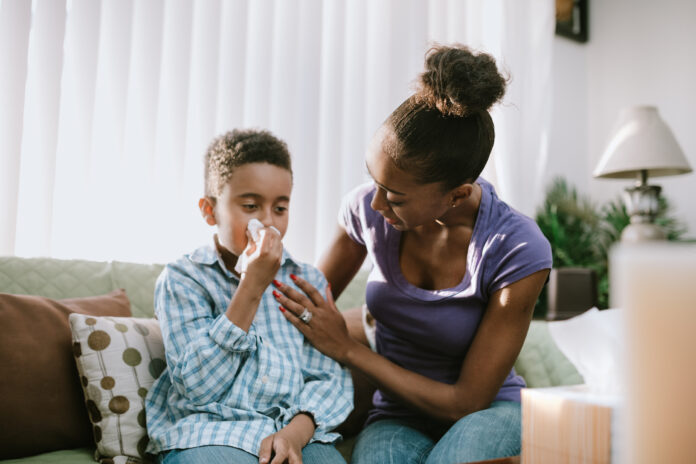North and South America are experiencing a “triple threat” of respiratory illnesses with rising cases of COVID-19, flu and RSV – a situation that should be have all countries on “alert,” the Pan American Health Organization (PAHO) says.
“Significant” surges of respiratory syncytial virus (RSV) are particularly challenging, as this virus affects some of the most vulnerable — young children, especially those under two — and there is no licensed vaccine for this illness, said Dr. Carissa Etienne, director of the PAHO, which is a regional arm of the World Health Organization.
High RSV activity is burdening health systems in Canada, Mexico, Brazil, Hawaii and the continental United States and some pediatric hospitals in these areas are reaching capacity as a result of this surge, Etienne said during a briefing in Washington, D.C. Wednesday.
That this is happening at the same time as an early beginning of the flu season and the ongoing COVID-19 pandemic is more than concerning, she said.
“The rise of a single respiratory infection is a cause for concern. But when two or three start impacting the population concurrently, this should put us all on alert.”
Children’s hospitals across Canada have reported significant surges in patients in recent weeks, including some in Ontario that have had to cancel major surgeries to redeploy staff to help in overcrowded emergency departments and intensive care units.
The situation has been further exacerbated by a shortage of children’s pain and fever medications in Canada, which has prompted the federal government to approve an exceptional importation of ibuprofen from the United States and acetaminophen from Australia to supply hospitals and retail stores amid the shortages.
Dr. Katharine Smart, a pediatrician and past president of the Canadian Medical Association (CMA), told Global News this week other respiratory illnesses are also spreading among children in Canada, including enterovirus, rhinovirus, human metapneumovirus and parainfluenza — all of which are contributing to significant strains in emergency departments across the country.
Some children in Canada are even presenting at hospitals and clinics with more than one of these respiratory viruses, Smart said.
After three years of little to no exposure to these common viruses that normally circulate during colder months, thanks to pandemic public health measures like masking and at-home learning, three cohorts of kids are now getting exposed to all of these illnesses all at once, she said.
4:08
Viral trifecta: Trio of illnesses infecting children, straining hospitals
“This is not a new phenomenon, but I think what’s happening right now is, because of the circulation — this is happening at an atypical time of year and with high numbers — we’re seeing more children that are at times presenting with more than one thing at once,” she said.
“And of course, that also puts you at risk of more severe disease.”
COVID-19 restrictions also meant pregnant women were not exposed to some of these viruses, preventing antibodies from being passed on to their babies in utero, said Dr. Marcos Espinal, an epidemiologist and assistant director of PAHO.
That’s why ensuring children are vaccinated against as many of these diseases as possible is more important than ever, he said.
Related News
Flu, COVID, RSV pushing cough and cold sales to all-time high, Loblaw says
Manufacturers working at ‘double or triple’ speed to replenish kids’ pain meds: Health Canada
“There is nothing as effective as vaccines. This is one of the greatest inventions in public health and science as something that works, that is effective,” he said, speaking through a translator.
“You should not pay attention to people who say that vaccines don’t work because they do and they’re wonderful.”
However, Etienne noted there is no pharmaceutical tool to prevent RSV, which means the only measures that can stop the spread of this particular virus are the same ones followed during the pandemic, such as masking and physical distancing.
“Health authorities should encourage these practices any time respiratory infections rise in their country. This is our best option for RSV, a disease that does not yet have a licensed vaccine,” she said.
Etienne also urged PAHO’s 35 member states to continue to encourage vaccination against COVID-19 and called for countries to strengthen genomic sequencing and surveillance of the virus.
WHO has made similar calls, noting that testing, tracking and sequencing of COVID-19 have dropped significantly across the world, which not only means case and death statistics can no longer be considered a true picture of how the pandemic is affecting populations, it also makes identifying and tracking new variants increasingly difficult.
“Every time we become complacent with this virus, we run the risk of a resurgence. We cannot lower our guard,” Etienne said Thursday.
“Let us remember that a health threat in any of our countries is a health threat to the region, and we must share this information to face it together.”



